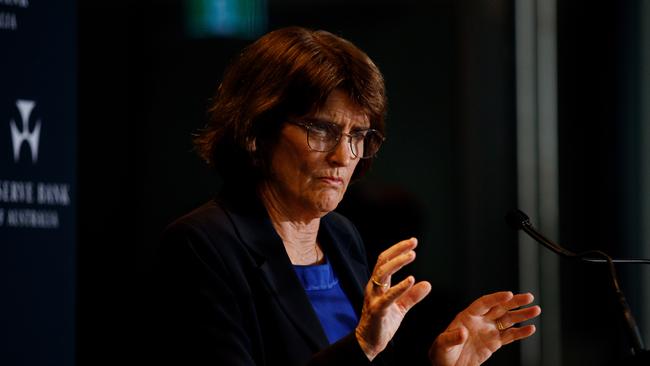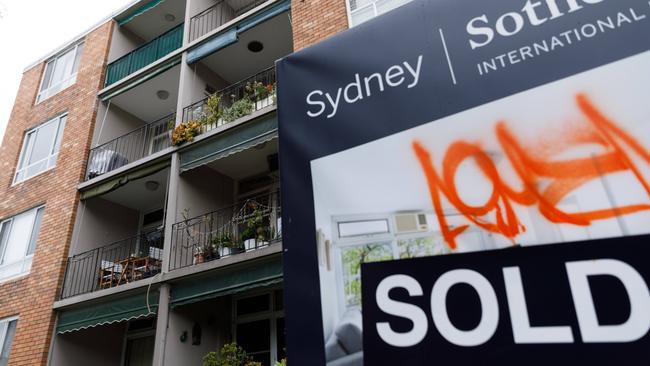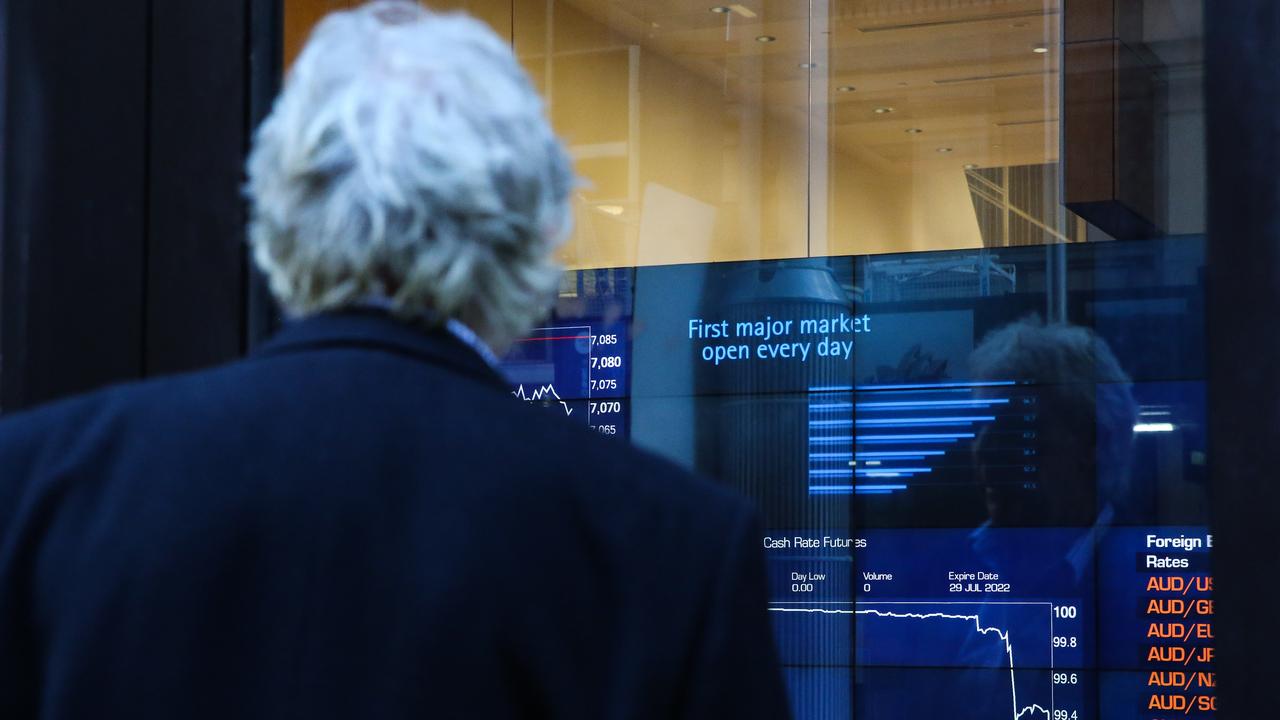‘Just trigger house price movements’: RBA cautioned on aggressive rate cuts
The Reserve Bank of Australia is being urged to go easy on interest rate cuts to avoid exacerbating an issue that just won’t go away.

Business Breaking News
Don't miss out on the headlines from Business Breaking News. Followed categories will be added to My News.
Australia’s central bank is being urged to learn the lessons from previous cycles and not cut interest rates in order to stop surging house prices, even in the event of a global recession.
US President Donald Trump’s tariff policy is causing turmoil in financial markets, with Australia’s usual response of slashing interest rates being questioned.
Independent economist Saul Eslake cautioned against using interest rates as the first line of defence due to their history of punishing would-be homeowners.
“When the Reserve Bank cuts the cash rate by a lot, as we saw in the GFC and Covid, what takes off is house prices,” Mr Eslake told NewsWire.
“I would think and would like to think the government is thinking that if a US recession comes to pass and that pushes Australia into a recession via the impact on China, that maybe we should be cautious assuming the right response is a big cut in interest rates as that would just trigger house price movements,” he said.

PropTrack data confirms this, showing Australia’s median house price is already at a record high in April, rising 0.20 per cent to $805,000, although prices in Australian cities are more expensive.
Since March 2020 during the depth of the Covid lows, house prices nationally have recovered by 48.6 per cent, putting more pressure on those looking to get into the market.
Instead of using the cash rate, Mr Eslake said Australia should be looking at fiscal policy from the federal government to support the national economy if there was a global recession.
US President Donald Trump’s aggressive tariff policy has wreaked havoc on markets since its announcement on April 2, impacting just about every trading partner with the world’s largest economy.
Although Mr Trump announced a temporary 90-day tariff pause on April 9, there is still a 145 per cent tariff on China alongside the universal 10 per cent tax on other countries that lifts the US average tariff rate to about 30 per cent.
JP Morgan chief global economist Bruce Kasman said there was a 60 per cent chance of a recession due to the tariff measures.
“Even with the latest step-back from the draconian Liberation Day measures, what remains is still enough to push the US and China — and thus likely the global economy — into a recession this year,” he wrote in an economic note.

Despite highlighting the issues for would-be homeowners, Mr Eslake concedes there are likely to be two interest rate cuts in the short term.
“I think it is very likely the Reserve Bank will cut interest rates on May 20th by 25 basis points and more likely than not they will cut in the meeting in August. but I do not hold a strong view they would do more than that,” he said.
“If that happens we might get four rate cuts, but we don’t know that’s what is going to happen and the Reserve Bank doesn’t know it with the confidence it would require to cut rates before it sees evidence of it happening.”
The major banks are all calling for at least three rate cuts in 2025, with NAB being the most bullish on rate reductions.

NAB economist Sally Auld on Tuesday said the RBA would cut the cash rate by 50 basis points in May, followed by 25 basis point cuts in July, August, November and February.
The major bank is expecting five cuts in this rate-cutting cycle, with the central bank needing to “catch up” with recent global developments.
This would take the cash rate down to 2.6 per cent and shave an estimated $526 off monthly repayments for the average $600,000 loan.
Canstar director of data insights Sally Tindall said the major banks would likely be in a rush to pass on any rate cuts to their mortgage holders.
“In this environment, I do not see a world where the banks do not pass on a rate cut to their borrowers because the bank knows better than everyone just how difficult it has been for their mortgage holders,” she said.
“If we see a flurry of cuts, like what NAB is forecasting, then yes, you don’t have to look back too far in history to find evidence of banks not passing rate cuts in full or at all.
“If we see a number of cuts in quick succession then we might start seeing that.”
Mr Eslake said: “I would be astonished if the banks tried to avoid passing on in full any reduction to the Reserve Bank of Australia’s cash rate.”
Originally published as ‘Just trigger house price movements’: RBA cautioned on aggressive rate cuts


